Lauren Bellhouse
Actionable Recourse via GANs for Mobile Health
Nov 12, 2022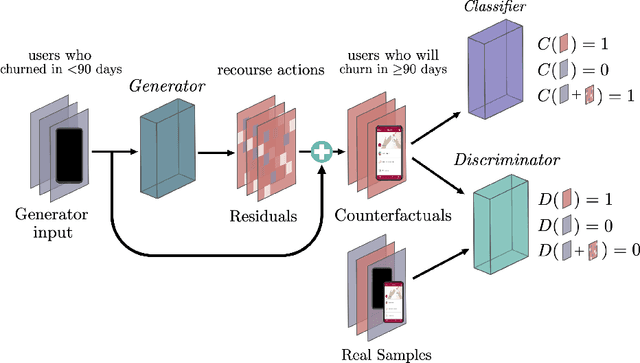

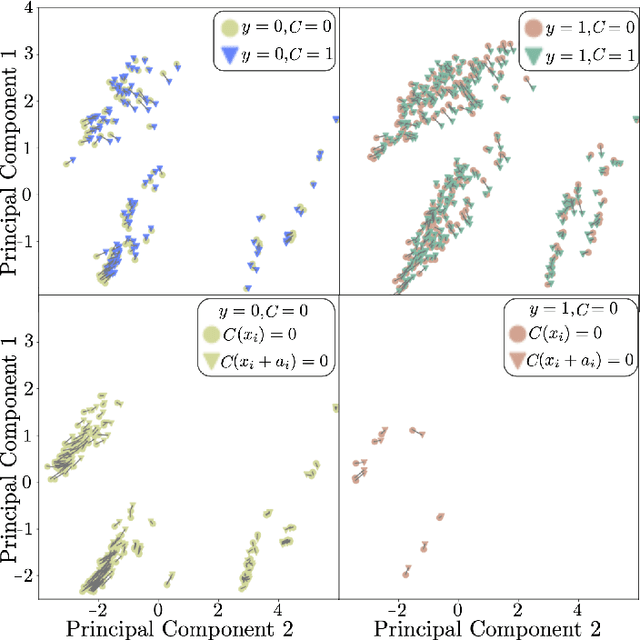

Abstract:Mobile health apps provide a unique means of collecting data that can be used to deliver adaptive interventions.The predicted outcomes considerably influence the selection of such interventions. Recourse via counterfactuals provides tangible mechanisms to modify user predictions. By identifying plausible actions that increase the likelihood of a desired prediction, stakeholders are afforded agency over their predictions. Furthermore, recourse mechanisms enable counterfactual reasoning that can help provide insights into candidates for causal interventional features. We demonstrate the feasibility of GAN-generated recourse for mobile health applications on ensemble-survival-analysis-based prediction of medium-term engagement in the Safe Delivery App, a digital training tool for skilled birth attendants.
User Engagement in Mobile Health Applications
Jun 23, 2022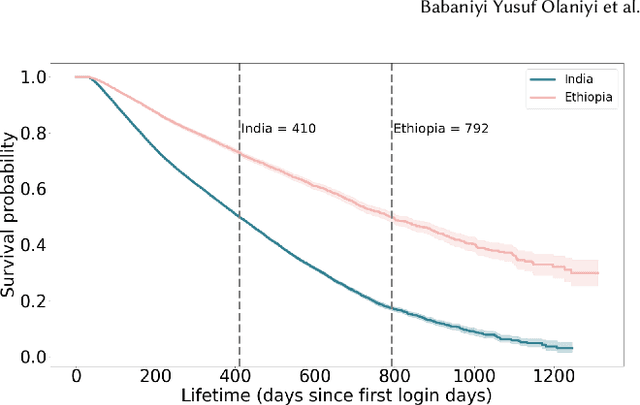

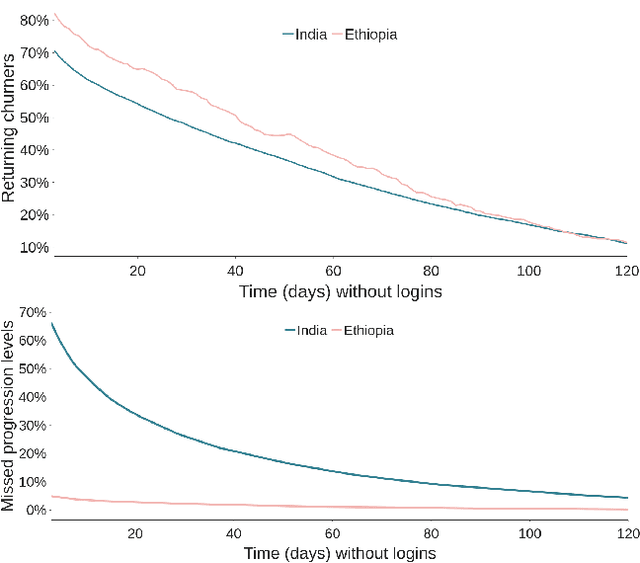

Abstract:Mobile health apps are revolutionizing the healthcare ecosystem by improving communication, efficiency, and quality of service. In low- and middle-income countries, they also play a unique role as a source of information about health outcomes and behaviors of patients and healthcare workers, while providing a suitable channel to deliver both personalized and collective policy interventions. We propose a framework to study user engagement with mobile health, focusing on healthcare workers and digital health apps designed to support them in resource-poor settings. The behavioral logs produced by these apps can be transformed into daily time series characterizing each user's activity. We use probabilistic and survival analysis to build multiple personalized measures of meaningful engagement, which could serve to tailor content and digital interventions suiting each health worker's specific needs. Special attention is given to the problem of detecting churn, understood as a marker of complete disengagement. We discuss the application of our methods to the Indian and Ethiopian users of the Safe Delivery App, a capacity-building tool for skilled birth attendants. This work represents an important step towards a full characterization of user engagement in mobile health applications, which can significantly enhance the abilities of health workers and, ultimately, save lives.
A Recommendation System to Enhance Midwives' Capacities in Low-Income Countries
Nov 04, 2021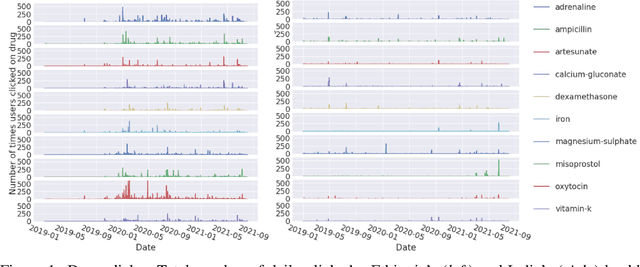
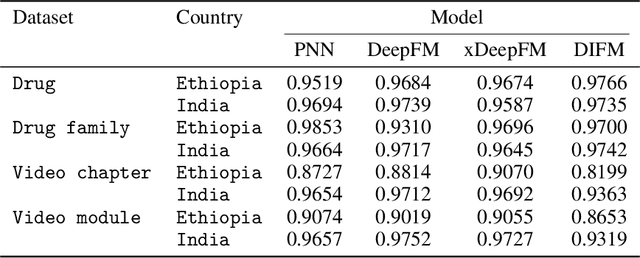
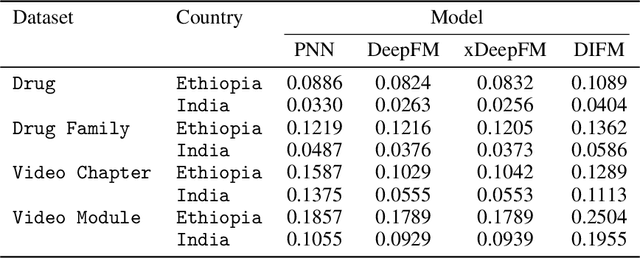
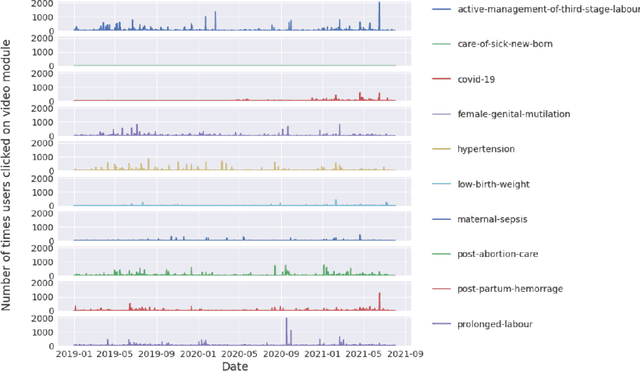
Abstract:Maternal and child mortality is a public health problem that disproportionately affects low- and middle-income countries. Every day, 800 women and 6,700 newborns die from complications related to pregnancy or childbirth. And for every maternal death, about 20 women suffer serious birth injuries. However, nearly all of these deaths and negative health outcomes are preventable. Midwives are key to revert this situation, and thus it is essential to strengthen their capacities and the quality of their education. This is the aim of the Safe Delivery App, a digital job aid and learning tool to enhance the knowledge, confidence and skills of health practitioners. Here, we use the behavioral logs of the App to implement a recommendation system that presents each midwife with suitable contents to continue gaining expertise. We focus on predicting the click-through rate, the probability that a given user will click on a recommended content. We evaluate four deep learning models and show that all of them produce highly accurate predictions.
 Add to Chrome
Add to Chrome Add to Firefox
Add to Firefox Add to Edge
Add to Edge